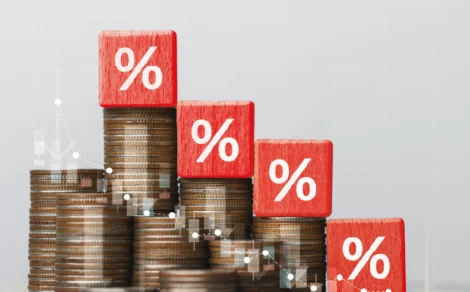If you’ve ever sold shares, property, or any investment for more than you paid for it, you’ve likely encountered capital gain tax. But what is capital gain tax exactly? Simply put, it’s the tax you pay on the profit you earn from selling an asset. Whether you’re investing in stocks, real estate, or even cryptocurrencies, understanding capital gains tax is essential to plan your finances efficiently.
The capital gain tax meaning lies in its role as a tax levied on the profit (not the total sale amount) you earn when you sell a capital asset. This includes everything from stocks and bonds to property and mutual funds.
Calculating Capital Gains Tax
The calculation of capital gain tax is fairly straightforward on paper, but can get complicated in real life, depending on the asset and the duration you’ve held it.
Step 1: Determine the Cost Basis
Your cost basis is what you paid to acquire the asset, including purchase price, fees, and commissions.
Step 2: Calculate the Selling Price
This is the amount you receive from selling the asset, minus any costs related to the sale (brokerage fees, legal fees, etc.).
Step 3: Subtract the Cost Basis from the Selling Price
The result is your capital gain. This gain can be:
- Short-Term Capital Gain (STCG) – If the asset was held for less than a year.
- Long-Term Capital Gain (LTCG) – If the asset was held for more than a year.
Step 4: Apply the Tax Rate
- Short-term capital gains are generally taxed as ordinary income based on your income tax bracket.
- Long-term capital gain is taxed at lower rates but varies based on your total taxable income and filing status (e.g., married filing jointly).
In some jurisdictions, indexation benefits are also available for long-term capital gains, adjusting your cost basis to account for inflation, and reducing your taxable gains.
Penalties for Missing Capital Gains Tax Deadlines
Avoiding or delaying paying taxes on your capital gains can have serious consequences. If you fail to declare capital gains in your tax return, you could be subject to:
- Late Payment Penalties: Interest is charged on unpaid tax from the due date.
- Underreporting Penalties: Fines for not reporting accurate income.
- Legal Consequences: In severe cases, repeated evasion can lead to audits or legal proceedings.
In short, even if you made a small profit, it’s important to include it in your annual tax return to stay compliant with tax laws.
Conclusion
Understanding capital gain tax is crucial for anyone involved in investing, whether it’s in real estate, the stock market, or cryptocurrencies. It’s not just about how much you earn but how much you get to keep after paying taxes. Proper planning, awareness of tax brackets, and taking advantage of cost basis and indexation benefits can help you reduce your tax burden.
Don’t wait until the end of the financial year. Keep records of your transactions, understand the rules around short-term capital gains and long-term capital gains, and always consult a tax expert if needed. It’ll save you time, money, and possible legal trouble.
Frequently Asked Questions
-
How do you determine the amount of capital gains tax owed?
Capital gains tax is calculated by subtracting the cost basis (what you paid) from the selling price (what you received), then applying the relevant tax rate based on whether the gain is short-term or long-term.
-
What is indexation, and how does it impact your capital gains tax liability?
Indexation adjusts the cost of your asset for inflation. It helps reduce your capital gain, thereby lowering the amount of tax payable, applicable mostly for long-term capital gain on assets like real estate and debt mutual funds.
-
Are there any penalties for delaying or skipping capital gains tax payments?
Yes, not paying or declaring your capital gains on time can attract penalties, interest on overdue amounts, and even potential legal action from the tax authorities.
-
Am I required to report capital gains if I haven’t made any sales?
No. Capital gain tax is applicable only when you sell an asset and realise a profit. Merely holding an asset that has appreciated in value does not trigger a tax liability.
-
How is capital gains tax applied to cryptocurrency transactions?
In most countries, including the UK and India, profits made from selling cryptocurrencies are considered capital gains and are taxed accordingly. Whether it’s short-term or long-term depends on how long you’ve held the crypto before selling.
Related Reads
Massive GST Shake-Up: Essentials Get Cheaper, Luxury Items Hit Hard – What It Means for You?
India is rolling out the most dramatic change to its Goods and Services Tax...
By: torus
- 4 mins
- 21.Aug.2025
- 4(2)
- 91
What Is Securities Transaction Tax (STT) and How Does It Work?
When you buy or sell shares in the stock market, you don’t just pay...
By: torus
- 9 mins
- 30.May.2025
- 0(0)
- 152
Taxation on Bonds in India
Fixed-income investments like bonds have always been popular among conservative investors looking for steady...
By: torus
- 9 mins
- 13.May.2025
- 0(0)
- 352
Best Tax Saving Investments in India
Tax-saving investment, as the name implies, helps you save taxes and build wealth over...
By: torus
- 7 mins
- 13.May.2025
- 0(0)
- 288
What Is TCS Tax?
The Indian Income Tax Act contains several provisions aimed at ensuring efficient tax compliance,...
By: torus
- 10 mins
- 05.May.2025
- 0(0)
- 484
New Tax Regime Vs Old Tax Regime: A Comprehensive Comparison
Tax filing is an essential financial responsibility for every earning individual in India. With...
By: torus
- 7 mins
- 02.Apr.2025
- 0(0)
- 557
Disclaimer: The content provided in this blog is for informational purposes only and does not constitute financial advice or recommendations. The content may be subject to change and revision. Readers are encouraged to conduct their own research and consult with a qualified financial advisor before making any investment decisions. Torus Digital and its affiliates takes no guarantees whatsoever as to its completeness, correctness or accuracy since these details may be acquired from third party and we will not be responsible for any direct or indirect losses or liabilities incurred from actions taken based on the information provided herein. For more details, please visit www.torusdigital.com.
MARC Technocrats IPO Opens: Key Details Investors Shouldn’t Miss
In December 2025, India’s IPO market continues to witness steady participation, especially in the...
By: torus
- 5 mins
- 12.Dec.2025
-
4(8)
-
49
KSH International IPO Opens: Key Details Investors Shouldn’t Miss
In late 2025, India’s IPO market continues to witness strong activity as companies across...
By: torus
- 6 mins
- 12.Dec.2025
-
4(8)
-
49
Neptune Logitek IPO Opens: Key Details Investors Shouldn’t Miss
India’s SME capital markets continue to attract companies from asset-intensive and service-driven sectors that...
By: torus
- 6 mins
- 12.Dec.2025
-
4(8)
-
49
Stocks to Buy Today: December 12, 2025
After a three-day selloff, Indian equities rebounded on Thursday, December 11, supported by buying...
By: torus
- 5 mins
- 12.Dec.2025
-
4.3(3)
-
49







